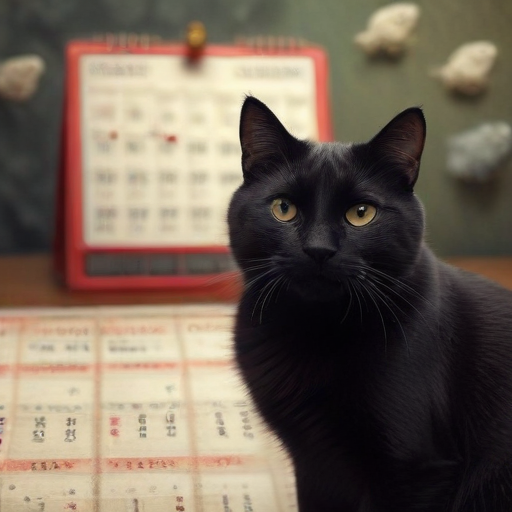Friday the 13th has rolled around again, arriving for the second time in 2024, just two months following its previous occurrence in September. This unique day, curious in its blend of superstition and cultural significance, has become synonymous with intrigue, fear, and even some celebratory traditions. Looking ahead, the next Friday the 13th in 2025 is anticipated to occur in June.
Often viewed as a day infused with bad luck, Friday the 13th has a rich history rooted in folklore and religious narratives. The superstition is believed to stem from a combination of Christian beliefs, numerology, and cultural tales. A common thread connects the number 13 to the story of Judas Iscariot, who betrayed Jesus and was thought to be the 13th guest at the Last Supper, which preceded Jesus’ crucifixion on a Friday.
Fridays have historically been seen as inauspicious, particularly during the Middle Ages when embarking on important endeavors or travel was discouraged on this day. This combination of Friday and the number 13 brought about a widespread belief in bad luck associated with the date, a notion supported by anthropological insights. Experts like Dr. Phil Stevens suggest that our apprehensions about this day are an example of “magical thinking,” where people impose meaning on unrelated events due to an innate human desire to notice patterns.
Contrarily, some view Friday the 13th as a day for positive activities, such as meditative practices or reflections. Spiritual Coach Laura Patricia Gómez highlights this perspective, emphasizing that the day can be used for personal transformation and rituals that promote positivity and growth, rather than fear.
Superstitions surrounding Friday the 13th vary, with some individuals opting to avoid significant decisions, travel, or even the number 13 itself in urban buildings, which often skip this designation in elevators. Meanwhile, other traditions, such as the aversion to broken mirrors or black cats, take on added significance on this day.
The legacy of Friday the 13th has also been profoundly influenced by pop culture, predominantly through the iconic “Friday the 13th” horror film franchise that began with its first release in 1980. The series introduces the formidable character Jason Voorhees and has cemented the day’s connection to horror and the supernatural.
However, there is a hopeful narrative surrounding Friday the 13th as a day of renewal. As Gómez suggests, this date encourages self-reflection and the consideration of personal changes. It stands as a reminder that the number 13 can carry positive meanings across various cultures. For instance, in some traditions, it is linked to auspicious events rather than misfortune.
For individuals looking to harness the energy of this day, simple cleansing rituals may be beneficial. They can involve thoughtful introspection, meditation, and protective measures to foster a sense of peace and positivity.
In summary, whether viewed with trepidation or as an occasion to celebrate transformation, Friday the 13th presents a unique convergence of history, culture, superstition, and opportunity for personal growth. It serves as a reminder that fear can be transformed into a chance for reflection and renewal.
